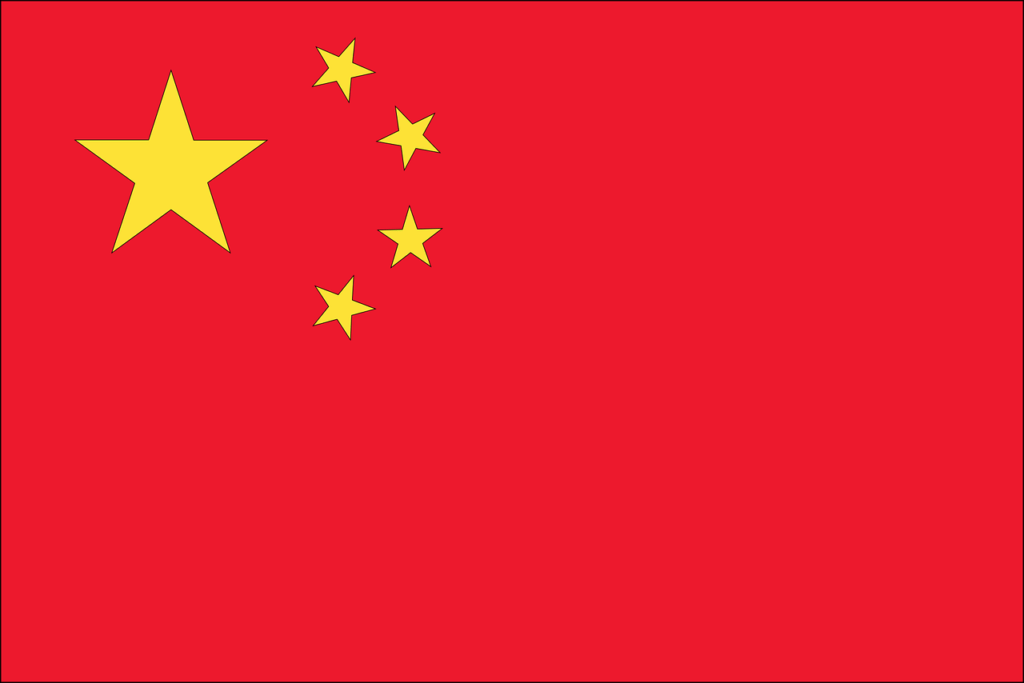
The government maintained insufficient anti-trafficking law enforcement efforts, including by continuing to apply extensive law enforcement and paramilitary resources toward the mass detention and forced labor of members of ethnic and religious minority groups. The criminal code criminalized some forms of sex trafficking and labor trafficking. Various provisions of the criminal code could be used to prosecute sex trafficking offenses. Article 240 criminalized “the abduction and sale of women or children,” which included abduction by deceit, kidnapping, purchasing, selling, sending, receiving, and transferring for the purpose of sale; however, unlike the definition of trafficking in persons under international law, Article 240 did not explicitly link these acts to a purpose of exploitation. Article 240 prescribed penalties of five to 10 years’ imprisonment and fines for the abduction and sale of women and children. If an abducted woman was then forced into “prostitution,” the penalties increased to 10 years’ to life imprisonment, fines, and confiscation of property. These penalties were sufficiently stringent and commensurate with the penalties prescribed for other serious crimes, such as rape. Article 241 criminalized the purchase of abducted women or children and prescribed a maximum penalty of three years’ imprisonment, short-term detention, or controlled release; like Article 240, it did not require that the purchase be for the purpose of exploitation. Penalties under this provision were not alone sufficiently stringent; however, Article 241 stipulated that if an individual purchased an abducted woman or child and then subjected them to “forcible sexual relations,” they would face additional penalties under the criminal code’s rape provisions. Article 358 criminalized forced prostitution and prescribed penalties of five to 10 years’ imprisonment; if the offense involved a child under the age of 14, the penalties increased to 10 years’ to life imprisonment in addition to fines or confiscation of property. These penalties were sufficiently stringent and commensurate with the penalties prescribed for other serious crimes, such as rape. Article 359 criminalized harboring prostitution or luring or introducing others into prostitution, and it prescribed a maximum of five years’ imprisonment and a fine; if the offense involved a girl under the age of 14, it prescribed a minimum of five years’ imprisonment and a fine. These penalties were sufficiently stringent; however, the penalties prescribed for offenses involving girls 14 to 17 years of age were not commensurate with the penalties prescribed for other serious crimes, such as rape. Labor trafficking offenses could be prosecuted under Article 244, which criminalized forcing a person “to work by violence, threat, or restriction of personal freedom” and recruiting, transporting, or otherwise assisting in forcing others to labor, and prescribed three to 10 years’ imprisonment and a fine. These penalties were sufficiently stringent. The government adopted the Women’s Rights and Interests Protection Law, which highlighted existing protections for women under Chinese law including the prohibition of the crimes relating to trafficking involving women as established under Article 240 and 241 of the criminal code. The law also directed all levels of government personnel to report, rescue, and provide protection services to women who have been subjected to these crimes. It further established that any personnel who fail to fulfill such obligations will be subject to penalties in accordance with relevant criminal laws.
Although the central government continued to prosecute and convict PRC nationals for trafficking crimes, authorities did not collect or report comprehensive law enforcement data. Courts likely issued lower, suspended sentences to traffickers who purchased commercial sex from trafficking victims than to traffickers who abducted or sold women into sex trafficking. Partial public records of anti-trafficking enforcement continued to feature crimes outside the definition of trafficking according to international law (including migrant smuggling, child abduction, custody disputes, and fraudulent adoption without the purpose of exploitation), making it difficult to assess progress. The government continued to handle most cases with indicators of forced labor as administrative issues through the Ministry of Justice (MOJ) and seldom initiated prosecutions of such cases under anti-trafficking statutes; observers noted authorities were more likely to persecute human rights advocates and organizations drawing attention to forced labor than to enforce labor laws. Some courts likely continued to prosecute trafficking crimes under laws pertaining to domestic violence, labor contract violations, and child abuse, all of which prescribed lesser penalties. In prior years, authorities did not disaggregate conviction data by the relevant criminal code statutes, and courts reportedly prosecuted the vast majority of these cases under Article 358 – especially for those involving commercial sexual exploitation – rather than under Article 240. Traffickers appealed at least two convictions during the reporting period; neither appeal was successful and courts affirmed a 42-month sentence for buying abducted women and rape in one case, and affirmed an 11 month jail sentence and 8,000 renminbi (RMB) ($1,160) fine for migrant smuggling and human trafficking in the other case.
For the sixth consecutive year, the Ministry of Public Security (MPS) did not report the number of investigations initiated of possible trafficking cases (1,004 in 2016), but it claimed 701 cases from prior years remained under investigation during January to April 2022 (compared with 700 cases reported for January to April 2021). The government did not report initiating any prosecutions; it also did not report continuing prosecutions initiated in prior years (compared with 86 cases prosecuted in 2021), or provide further information on the status of these cases or the nature of the relevant alleged crimes. Authorities did not report investigating or prosecuting any PRC nationals allegedly exploiting victims in cyber-scam operations in Burma, Cambodia, or Laos. The government published limited data on convictions in human trafficking cases on a public judicial database; however the public database was incomplete. Unlike in 2020, the government did not provide data on the number of cases of “women trafficking and child abduction,” “forced prostitution,” or forced labor it concluded in 2022 (compared with 546 cases, 475, and 38, respectively, in 2020). The government did not report convicting any traffickers (compared with nine convictions in 2021; unreported in 2020; 2,355 convictions in 2019). The government again did not provide complete sentencing information, compared with sentencing nine traffickers to penalties ranging from one to 15 years’ imprisonment with fines ranging from 5,000 to 50,000 renminbi ($725 to $7,250) in 2021.

Authorities engaged in law enforcement cooperation with European, Central Asian, South American, and Southeast Asian governments to investigate cases of PRC citizens subjected to trafficking abroad, cases involving foreign nationals subjected to trafficking within the PRC, and to extradite PRC nationals suspected of human trafficking abroad. The government maintained anti-trafficking agreements with the five other Lower Mekong countries to jointly address trafficking via the forced and fraudulent marriage of their citizens to PRC-based individuals; some provincial governments maintained their own similar agreements with counterpart entities in bordering countries. Authorities previously reported maintaining coordinated anti-trafficking mechanisms with law enforcement and interior ministry counterparts in 34 countries, and these mechanisms were likely still in place. Some law enforcement personnel continued to report their PRC counterparts were unresponsive to requests for bilateral cooperation on cross-border trafficking cases, while others reported the PRC’s cumbersome law enforcement bureaucracy hindered joint operations. Some foreign officials noted jurisdictional challenges when attempting to pursue trafficking investigations, including into cyber scam operations, inside of special economic zones (SEZs) in Lower Mekong countries, and single foreign investment project compounds in the Pacific operated by PRC national-owned companies.
For the second consecutive year, the government reported allocating funding to support capacity-building training for law enforcement on prosecuting trafficking cases, focusing on trafficking of women and children. Observers reported the need for training of officials on new changes to the criminal code. In previous years, PRC media outlets occasionally published accounts of corrupt officials arrested for allegedly shielding or profiting from criminal organizations engaged in commercial sex rings known to perpetrate sex trafficking. officials found guilty of these crimes reportedly faced expulsion from the Chinese Communist Party, termination of their official positions, fines, and referral to the judicial system. However, authorities did not provide statistics on the number of investigations, prosecutions, or convictions resulting from these efforts. Despite continued reports of law enforcement officials benefiting from, permitting, or directly facilitating sex trafficking and forced labor, the government did not report any investigations, prosecutions, convictions, or administrative fines or demotions of law enforcement officials allegedly involved in the crime. Officials at multiple levels, including central party-state officials, were also complicit in state-sponsored forced labor by directing the PRC’s mass detention, political indoctrination, and labor dispatch campaign against members of Turkic and/or Muslim minority groups, and some officials reportedly profited directly from this system. Authorities reportedly subjected Tibetans and members of other ethnic and religious groups to similar abuses. Xinjiang officials continued to obstruct meaningful access for international observers to sites across the region that would otherwise facilitate investigations into credible allegations of forced labor.
from 2023 Trafficking in Persons Report – U.S. Department of State
2023 Trafficking in Persons Report – United States Department of State




